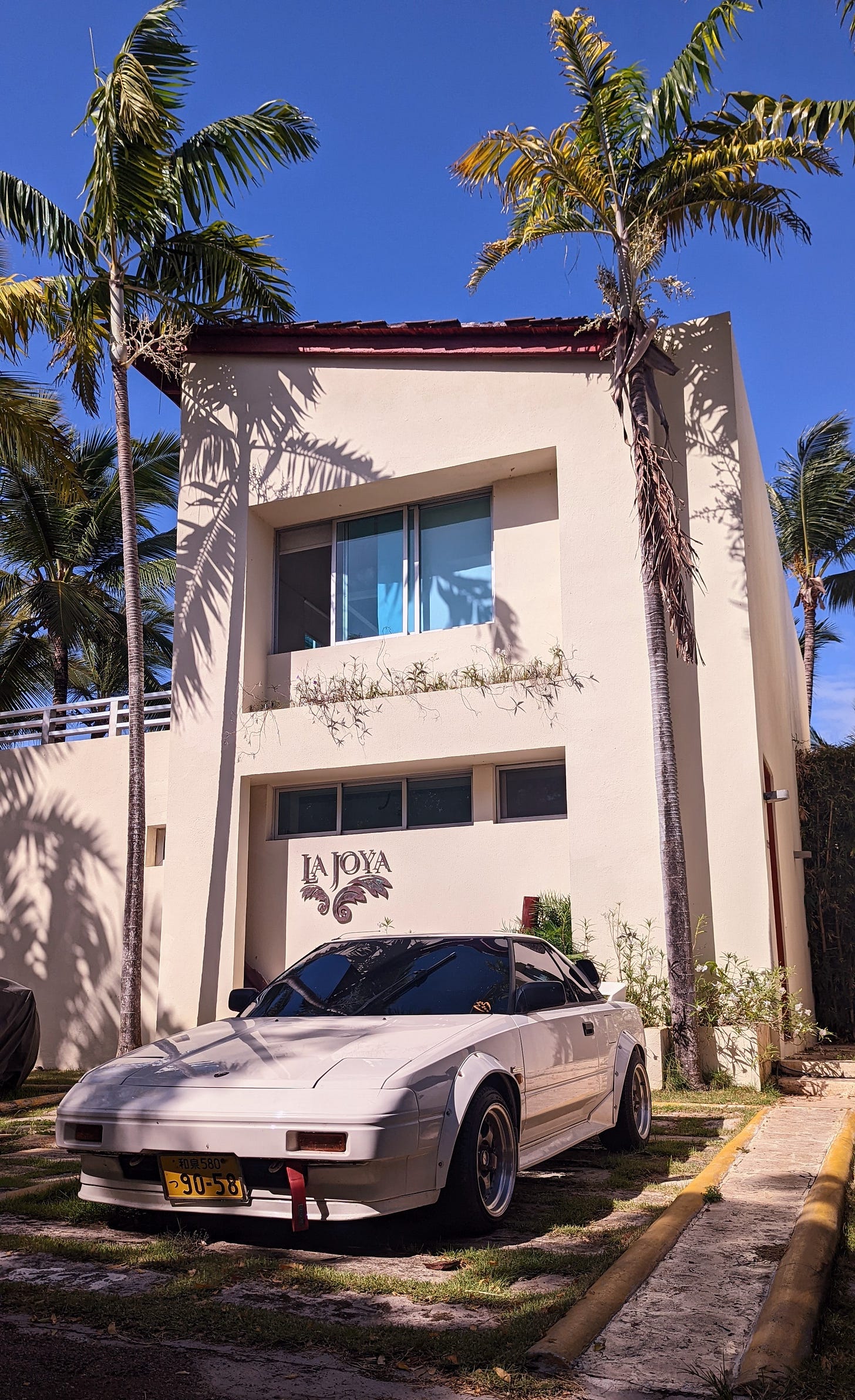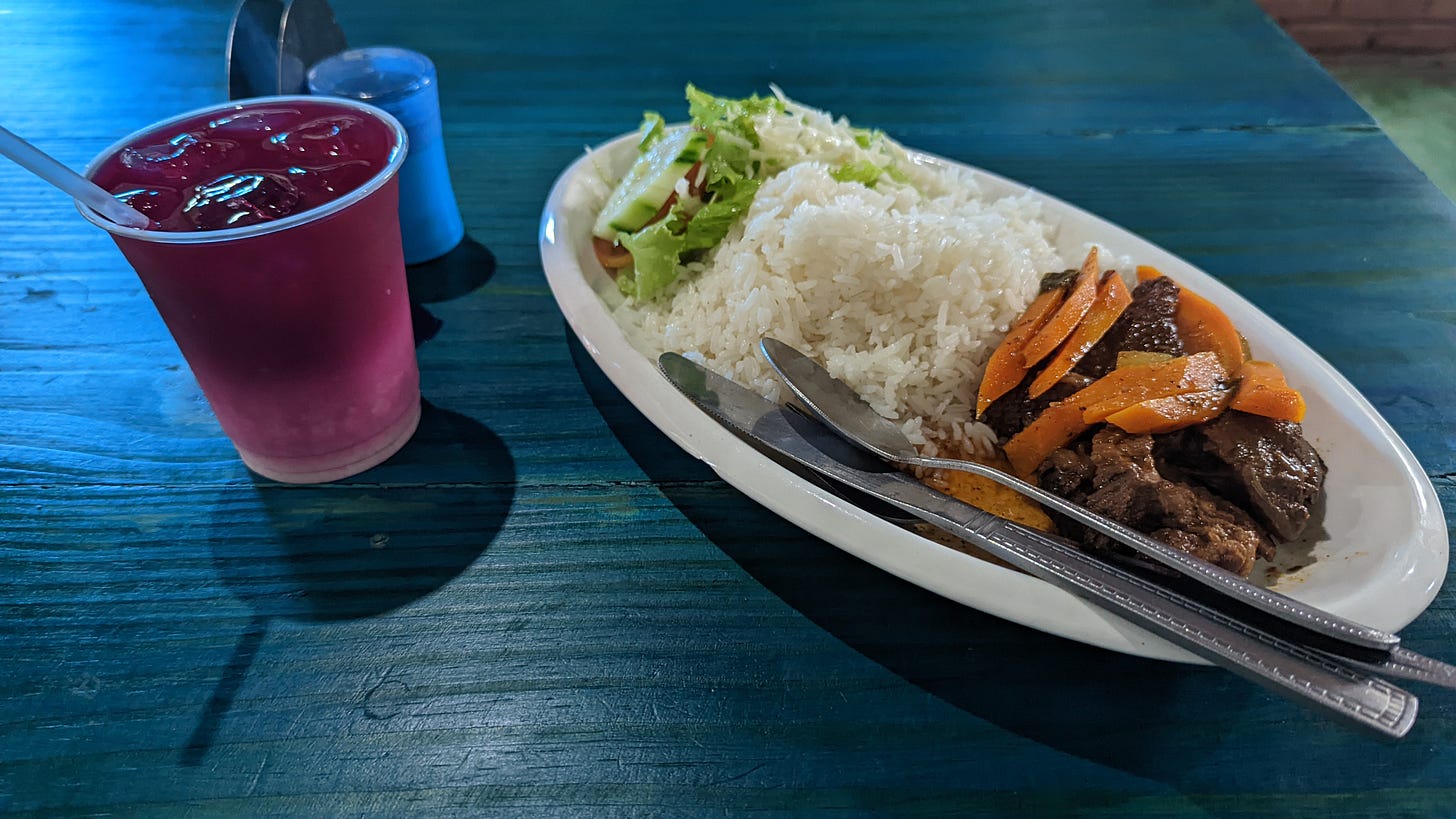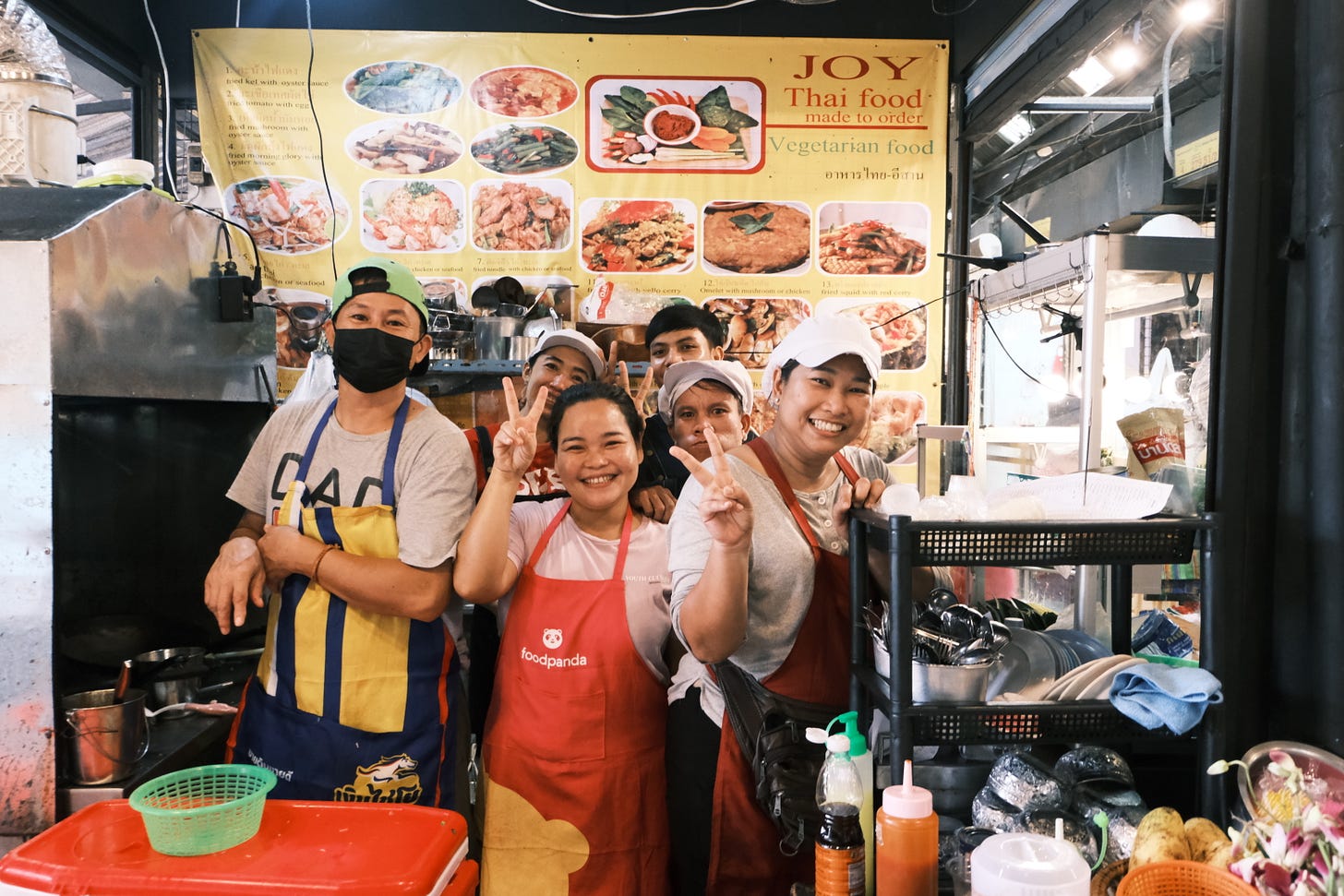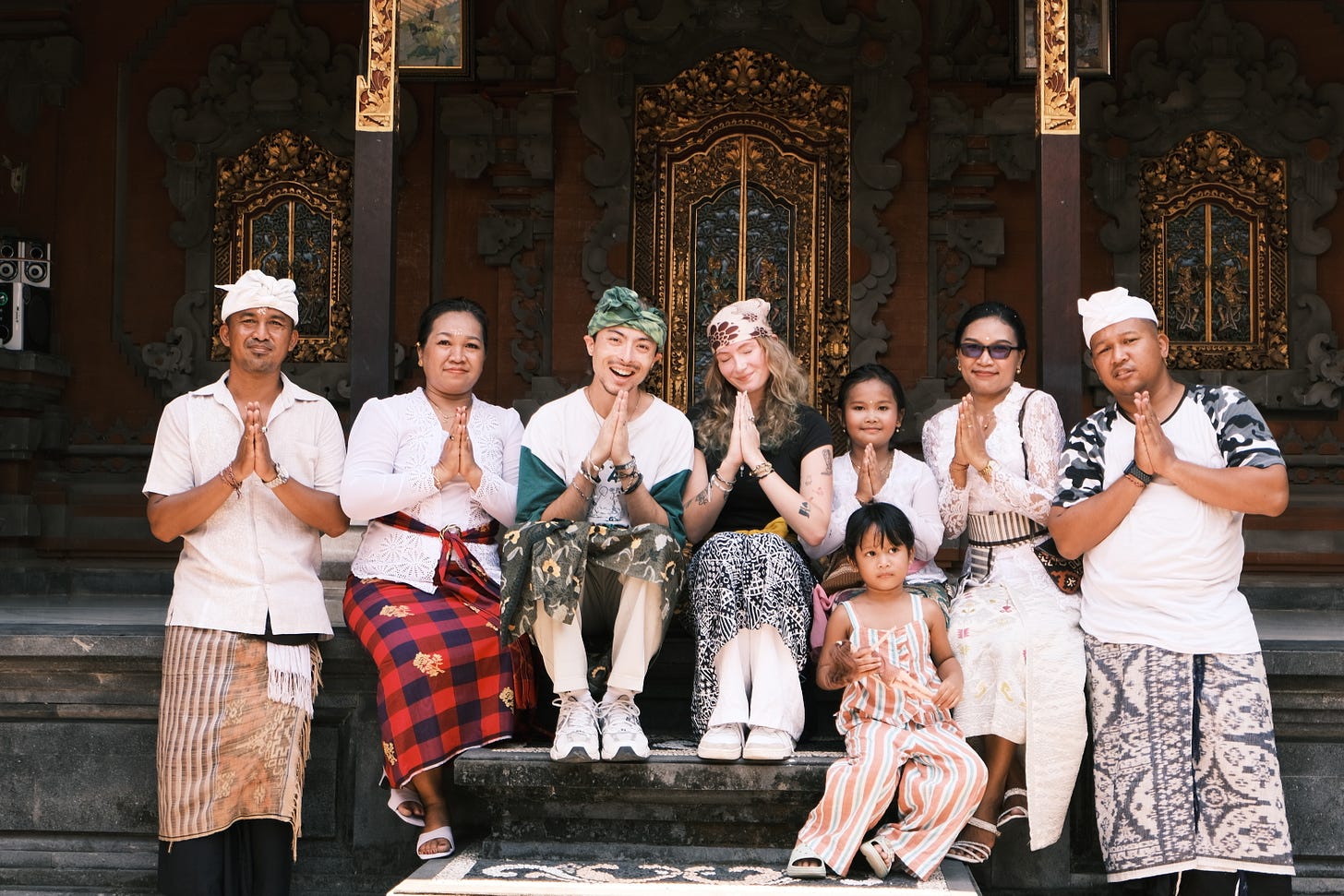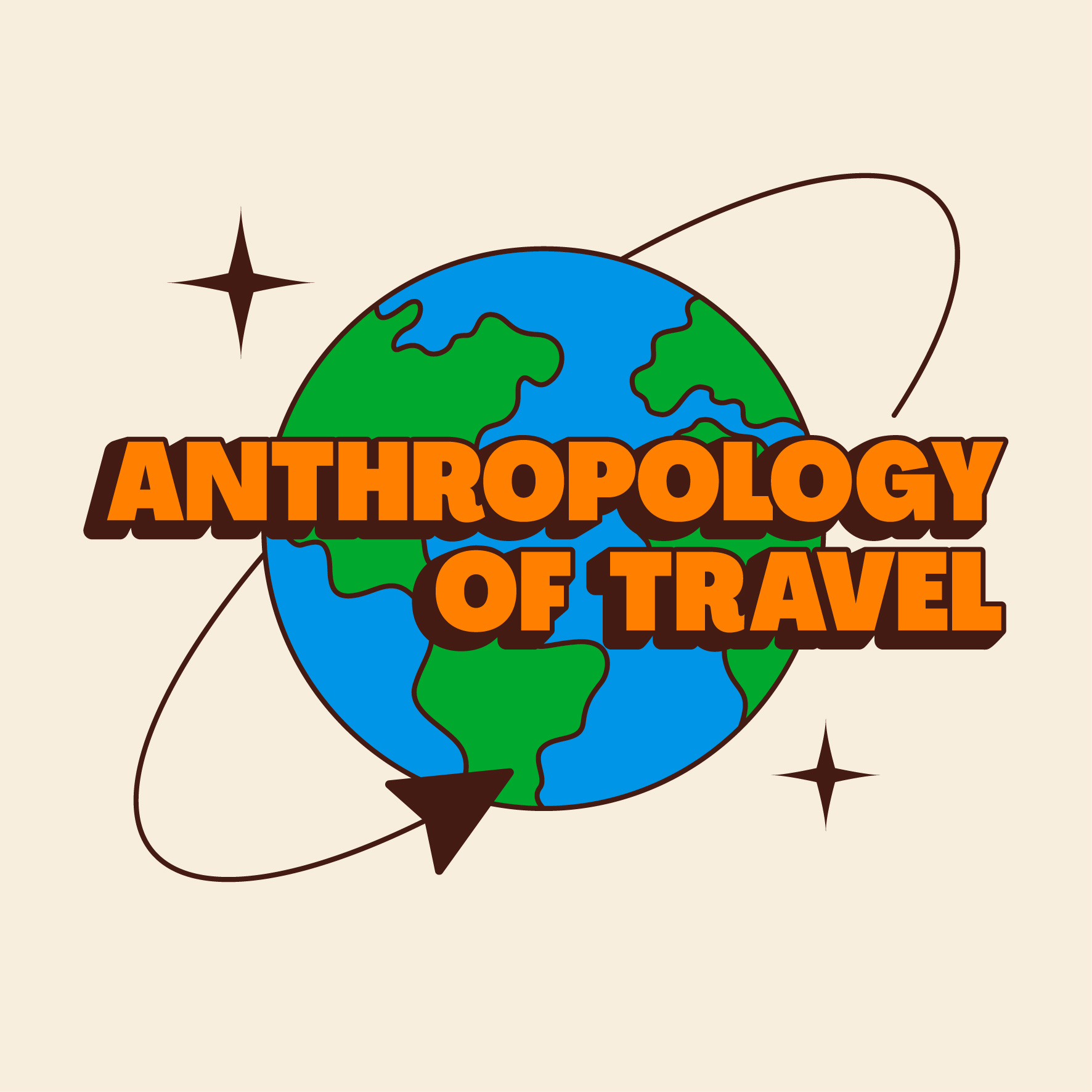How Tourism is a Colonial Industry - and What You Can Do to Avoid It.
Exploring the destructive colonial imaginaries the tourism industry creates for us from resorts, packages, and safari-esque tours.
Tourism in the 21st century is still a colonial industry. It separates us from locals by carving out their space exclusively for ourselves, creating a privileged Western tourist society which stands starkly apart from the community it ostracises.
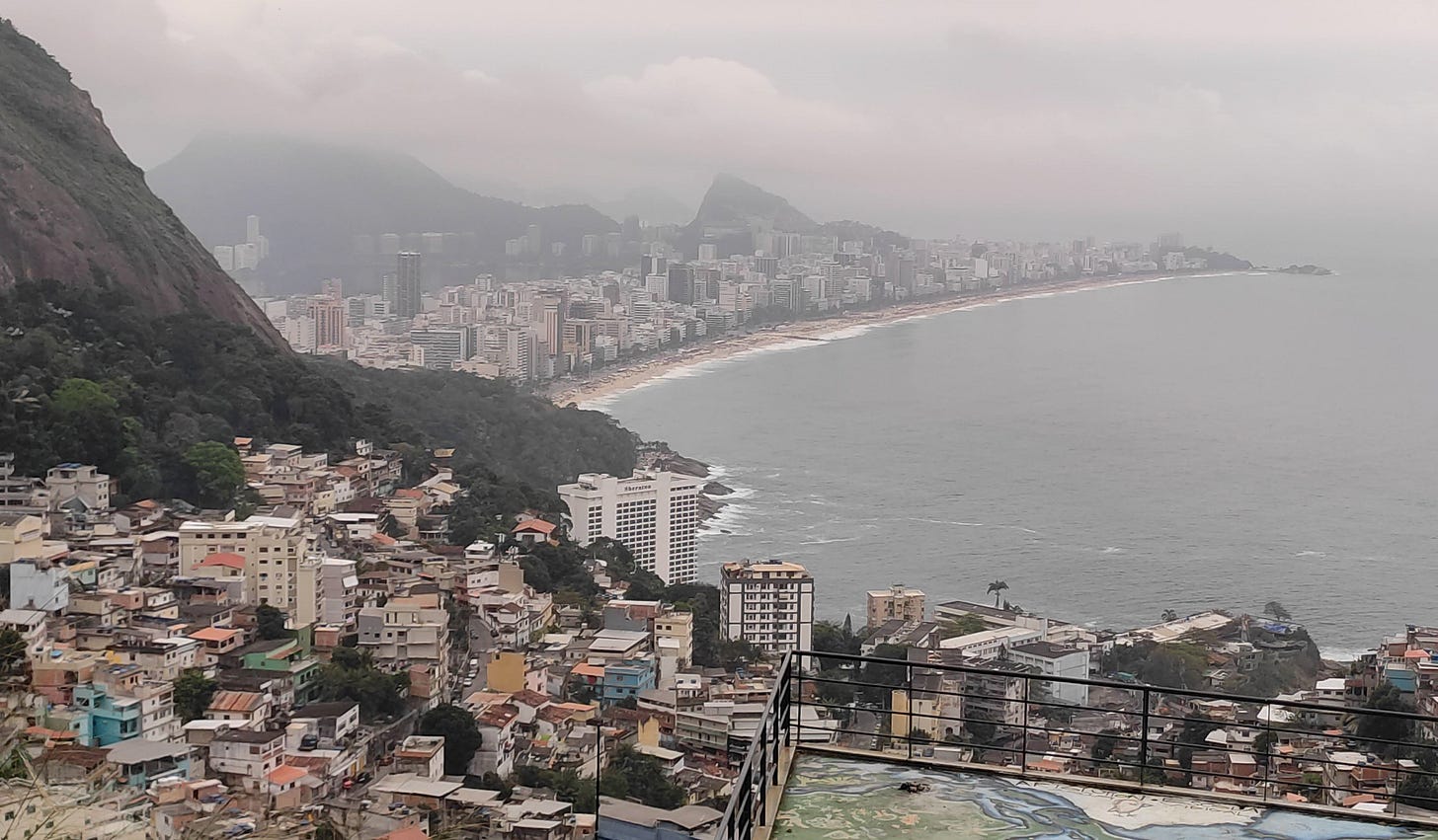
What do you think of when you imagine that perfect get away holiday? Resorts, spas, private beaches, swimming pools and hotel arranged tours? These luxuries seem to promise an escape, but if you look closer, you’ll notice they’re designed to shield tourists from the real world outside hotel walls. It’s a hollow escape designed to give you an illusion of exotic adventure for maximum profits that leaves you none-the-wiser about the true beauty and complexity of our global cultures.
In my four years of travel, I have bore witness to countless regions of tropic beauty reduced to generic, walled and gated resorts with private beaches. I have watched communities become isolated from these colonial enclaves, at times deeply exacerbating food insecurity and poverty as a result. I have witnessed jeep tours come through poverty-stricken neighbourhoods as Ray-Ban-wearing, gleaming Westerners take flash photos of locals from the car as if they are watching animals in a safari. I have had my eyes seared with the sight of luxury hotels situated immediately next to the poorest neighbourhoods of the cities.
We need to wake up to how problematic the travel industry is.
Tourism has built a wall between visitors and the local culture, ostracising communities from tourists as if they are shameful. From the high walls of luxury resorts in the Caribbean to the tourist enclaves of Bali, colonial echoes are still alive in the way we travel. It's a system of rose-tinted, distorted representations of reality, where the locals serve, and the tourists consume.
This isn’t just a minor issue—it’s a global trend that perpetuates inequality and isolates us from the rich, diverse lives that exist beyond our hotel rooms. So, what can we do about it? We must shift from Western luxury-seeking consumers to engaged travellers who desire authentic, community-driven experiences. At The Anthropology of Travel, we strive to show you how to break free from the travel norm. We help you explore the world in a way that celebrates cultures, supports local economies, and nurtures genuine connections.
It's time to change the way you travel. Let us guide you toward a richer, more fulfilling journey.
Contents
A colonial case study: Punta Cana, Dominican Republic
The grim reality
What can you do to change?
How we can help you.
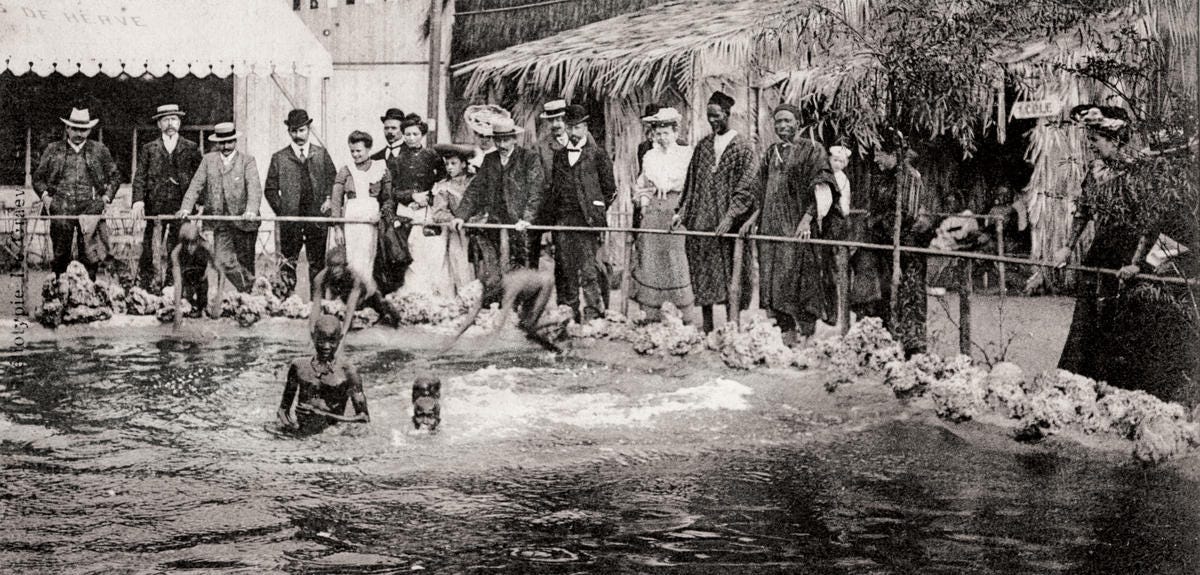
A Colonial Case Study: Travel diary: July 28th, 2022 – Punta Cana, Dominican Republic
I walked alone down isolated streets in the heart of town. Huge walls - two metres high - lined every street. Pale white, they blended in with the clouds above, creating a complete absence of presence. The roads were devoid of life, so eerily silent that with every gust of wind I could hear individual grains of dust sweeping across the sweltering tarmac. Occasionally, I heard a splash from a cannonball in the pool and the joy of a child’s laughter echo from over the walls. Whispers from another dimension, this inhospitable, hellish environment paralleled so closely a slice of heaven on Earth.
An older man rolled by on a rickety bicycle, each turn of its worn wheels marked by a rhythmic squeak. He wore a khaki field cap, a plaid shirt, and jeans frayed from years of work. He stopped by me. I felt like I was looking at an oasis of life amidst a barren desert.
“Estás perdido?”
Are you lost?
His eyes were warm, his smile open, framed by the deep creases in his weathered skin. Punta Cana is a place which entirely depends on tourism. There is a culture amongst Dominicans that locals told me: you must look after and help tourists wherever you can. Tourists are the lifeblood of the Dominican Republic. Around 60% of the country’s GDP is provided by the service sector and over 70% of the country’s employment is in some way connected to tourism. For that reason, I was told, tourists must be protected from the true reality of the Dominican Republic, remaining in their resort bubble, as if, by some manner, it is almost shameful to show the true colours of this beautiful island.
This man, spotting me outside the resort walls, probably thought I was stranded – this wasn’t where I was supposed to be.
I was a little flustered by my surprise encounter and took a second too long to get my intermediate Spanish accented with a lack of self-confidence in gear.
“Quizás estás buscando su resort? Hay un ahí.” Perhaps you are looking for your resort? There is one there. He pointed down the road at guarded gates that broke the great wall of white which encased me.
“No señor, gracias. Estoy caminando.” No, thank you. I’m just walking.
He studied me, puzzled, and offered one last suggestion -
“Where are you going? You can get a taxi easily. The man at the gates can help you” (translated from Spanish).
I politely declined and said I was in it for the walk. With one last look that clearly said someone like me probably didn’t belong in Punta Cana, he was on his way. Alone I was again - me, myself, and I - in the middle of this man-made desert devoid of colour and earthly beauty.
It baffled me all day how a space of such pristine Caribbean beauty could be twisted into a hollow shell where the even wandering through quiet island streets is a distant fantasy. This gentle, kind-hearted man pause to help me - a stranger, a gringo –stay in my naïve holiday mirage of carefully curated joy.
The perspective crushed my soul. The true reality that locals must live is far different. I’m just one of millions of tourists, welcomed with open arms and warm smiles, while we collectively erode the island’s natural beauty in return. The reality of the hospitality industry in the Dominican Republic is irrevocably inhospitable to the community.
I didn’t stay in a resort; I sided with the locals.
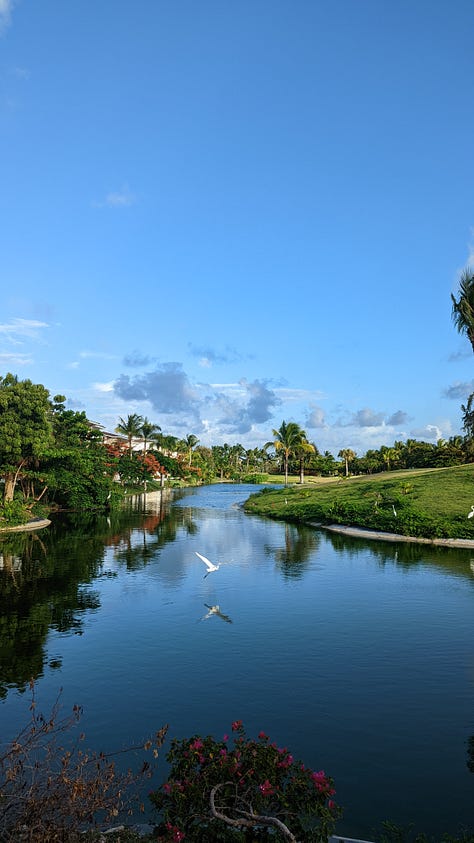
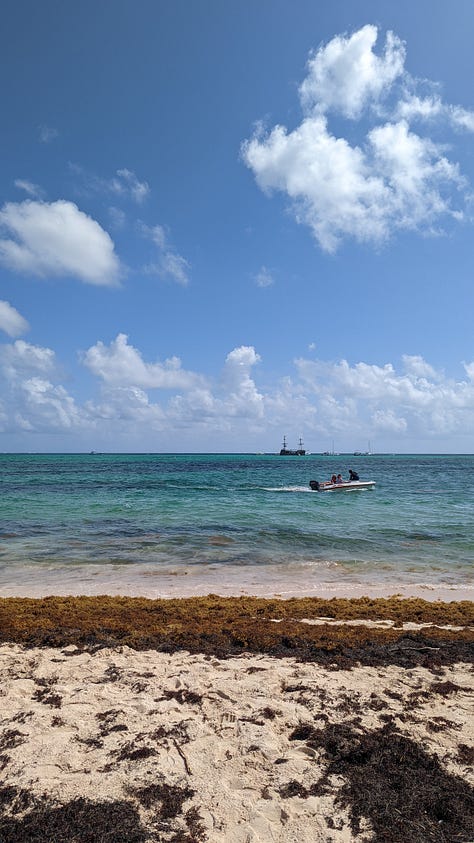
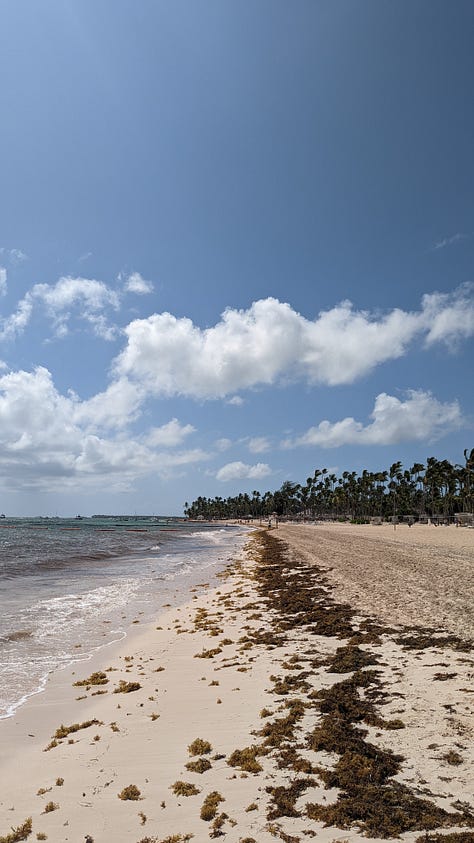
On the other side, I saw a community suffering to make ends meet. Food prices in locals’ cafes that were through the roof. Water insecurity. Nutrition insecurity. Two lives, worlds apart, separated by a wall. I meandered down streets with no soul. No businesses, no houses, not even the familiar sight of a local on a sun-worn plastic chair watching the day pass. The very heart of the island seemed drained, as if its spirit, too, was fenced away.
In the town centre, I dodged Western restaurants with $25 plates served by waiters that are paid 170DOP an hour (£2.20). I ate in local cantinas for 500DOP (£7.50 at the time). That was no mistake; I saw locals pay the same price. As a budget traveller, I felt priced out even at the cheapest of places. Imagine how that reality feels for locals? I could get cheaper meals in London. There was not much diversity in the food at all: deep fried chicken almost every day, rice, a glass of iced beetroot juice, and bleach-washed vegetables.
That’s right. Bleach. The Dominican Republic is on a small island, but it hosts 10 million tourists annually, and 11 million people live here. The demand for produce is so overwhelming that monocultures run rife, destroying the balance of natural ecosystems. As a result, the nation has become hopelessly dependent on pesticides, which have caused bacteria and parasites to evolve super-resilience, therefore requiring such a desperate measure to be safe for consumption.
The irony is profound: the creation of a vacation paradise has made a dystopian existence where even what is healthy could kill you.
All the top produce goes to the resorts. Look at what is left for the locals. Tourists often gush about the magical time they had in the DR, returning from their pampered stays glowing with the warmth of Dominican hospitality. But how many pause to consider the cost of that holiday joy? For the locals, their daily existence stands in stark contrast, worlds apart from the paradise we tourists consume.
Psst… we also have Instagram and TikTok – you’ll find something different there: travel from a Gen Z perspective.
The Grim Reality
Professor Uma Kothari once wrote “the enclavic resort hotel exemplifies the continuing salience of tourism as a realm of colonial representations”; they are literally the division of a community between native and non-native – the fundamental creation of dystopia for the sake of pleasure and relaxation. The cultures of holiday lands are reduced to a spectacle.
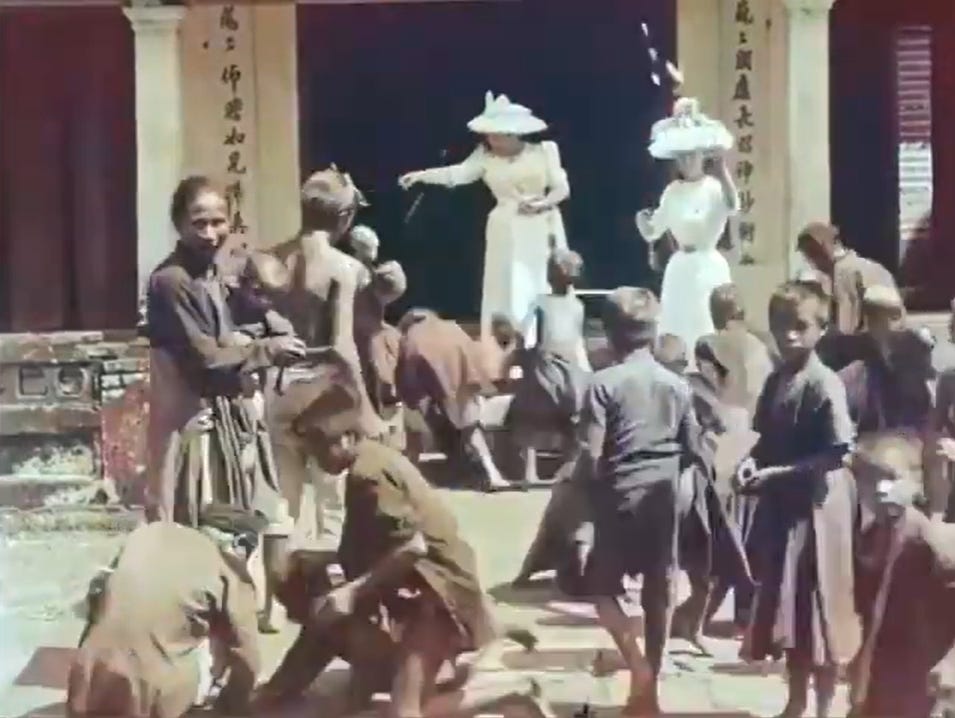
These resorts are completely generic – found across the tropical world, replicating centuries-old representations of luxury and subservience in formerly colonised nations. Within enclaves of imposing walls and gates heavily guarded by security, are nestled oases of spas, verdant lawns, golf courses, restaurants, bars, international television and high-speed internet. These are designed to be self-contained environments of Western familiarity that conform to colonial standards of service and comfort.
Through my many years of travel, I have proactively done my best to avoid the colonial tourist reality. I always position myself as close with locals as I can. I stay in guesthouses or hostels run by families situated right within local neighbourhoods. I eat at canteens shoulder-to-shoulder with workmen on lunch breaks and order what they are having. I learn as much of the language as I can, or, if I’m just passing through quickly, I always seek to use my voice translator app to start deeper conversations about history, culture, and beliefs.
However, the grim reality is that the colonial space in the Global South’s most popular destinations has encroached far into everyday lives and the community. It is not just the enclave resort that creates a colonial space; as Kothari wrote, these are merely “nodes within tourist systems that include airports, aeroplanes, sight-seeing tours, restaurants, emporia and attractions”.
In Rio de Janeiro, I stayed with the family of a friend at their home in the beautiful beach-front favela of Rocinha. Every day, old US Army jeeps came by, filled with tourists. How utterly disrespectful it is to gawk at locals as if they are animals in a safari. Videos of these tourists audaciously barrelling through favelas is often shared on Brazilian social media. The comments are filled with outrage. Yet, the tourist industry continues to sell these packages online, some charging almost a hundred dollars.

Colonial tourism is one which insulates tourists from the culture of their surrounding environment. Your resort may have inwards-facing balconies with every amenity facing the beach to foster the illusion of detachment from the outside world. This is often the case in Brazil, where many tourists come to its vast golden coasts and stay in resorts. In doing so, you will definitely weave through countless concerns from friends and family of the country’s danger.
The outside world is often characterised by hotel staff as dangerous by hotel staff and guides, where you might become the victim of crime, violence, unkempt and threatening chaos. They minimise your potential contact with locals other than those who work for the resort, diminishing the chances of cultural encounters. They restrict the possibilities of meeting those of a different background, a different reality, or a different class. They make sure disturbing sights of poverty are kept from your glance, organising tour pick-ups at the reception crafted by guides who likewise take you to curated spaces designed to receive tourists. In turn, they create a micro-economy space where vast sums of money from tourists pass into and remain for a select few in profiting from the colonial industry.
I spent one year living in Brazil, wandering streets by myself daily. I was never robbed, never extorted. I never felt in danger.
NOTE: that is not to say there is never danger when you travel. Through my many years of travel, I have been in a couple, isolated, dangerous situations. However, I was completely fine through all of them. What is key is that you need to learn how to judge the safety of a space by yourself, and not be mis-sold by guides with ulterior motives. I have complete confidence within you that you will be able to do so. Don’t force yourself to dive in deeper than you want to as you develop this skill.
Likewise, in a recent trip to Bali, I saw two utterly different societies. One of beautiful, local communities, with ease holding onto tradition. Pushed away from beach sides, they congregated daily at volcanic-black bricked temples, each with their own local ceremonies and events. Warungs (canteens) bustled with workers having some hearty, Indonesian grub. Children played in hidden side streets in front of their open-doored family houses, where, if you passed, someone from within would surely shout “hello! Nice to meet you” and rush out to ask all about your life.
The other society was carved by foreigners and tourists. At beachfront towns, it was utterly impossible to find local food. Steak, sushi, and pizza was everywhere. If there was an Indonesian restaurant, it was a tourist gimmick of extortionate prices for foreigners to dip the tips of their toes in the culture. Drunk tourists staggered down streets at any time of the day. Others lined in 20-metre-long queues for an avocado toast breakfast. Prices for everything were up to five times more.
I felt sick that one of the world’s most stunning islands was turned into a theme-park-esque tourist destination completely fixated on cultural reductionism. The heart-sinking feeling it gives me cannot be put into words.
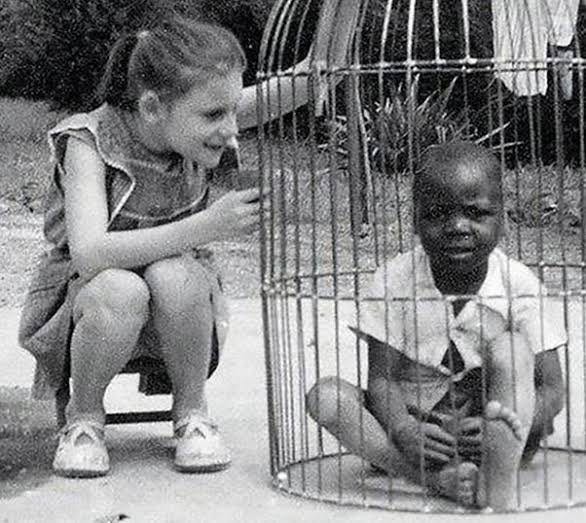
The change starts with us. We need to reimagine what we seek out from travel as individuals. We need something that nourishes our souls and celebrates the cultures we visit by mixing us together with our hosts. We need to seek out travels that allow us to grow as individuals and gain perspective on the world. Travel should be a chance to learn and understand how others live – that includes traditions and beautiful food but also realities of daily lives and any struggles that may come with. That way, the tourist industry will adapt to our needs, providing us with experiences that are community run, sustainable, inclusive, and not damaging for the daily lives of locals.
Travel should bring us together, not divide us.
How can you be the responsible traveller?
Everyone is their own type of traveller. We often seek very particular types of things when we vacation as an expression of how we want to relax.
My main advice is principally to question whether what you want may come at too high a cost for the locals. Does it isolate them, disenfranchise them, make them subservient to you? If yes, then consider making small changes, one at a time, to make sure you are being a responsible traveller. I guarantee you that you will like your new way of travel as you will make so many more lasting connections with amazing people you never could have imagined meeting.
When in Rome, do as the Romans do, right?
See this as a guiding principle which may lead you away from some pampering experiences that separate you from the culture of your destination and towards more soul-nourishing ones.
Okay, let’s talk about actual physical things you can do.
Exchange your resorts for smaller hotels, hostels, or better yet, homestays that do not separate you with high walls and security. You should nestle yourself in places situated amongst local neighbourhoods in stays that are run by members of the community. I especially advise against staying in hotels or resorts run or owned by foreigners to that country. Yes, resorts have a luxury allure that dazzles all of us and reels us in like nicotine. But we need to stop. Besides, within you lies an undeniable desire for adventure, which I wrote about in another article.
If you do find yourself in a resort or large hotel, make sure you’re always venturing outside to eat. Hold off from the temptation to eat a burger, pizza, or pasta for as long as you can. Really open your palette to that country. Arrive with a list of foods that you want to try that can only be found in that country or even town, and make sure you try them all at least twice to really understand how it is made.
Try and eat at a local’s canteen or worker’s café once a day. Maybe for lunch – you can save a slightly more upscale restaurant for dinner. Try what the locals are having. It might end up being a hearty curry, or a refreshing glass of tea. Don’t worry if you’re a picky eater – try what you can and don’t forget that being on holiday is the time to try new things and prove to yourself you can be different from who you are.
When going out for famous activities, don’t arrange them through the reception. Research places online or through asking locals which are community or family run. In doing this, you would be breaking out of the packaged norm, benefitting the locals and providing yourself with a more unique experience. You will also end up at a more secluded, hidden gem spot, rather than somewhere breaming with tourists. Also, it is almost guaranteed that you will spend less. Google Maps or Seek Sophie is how I do it.
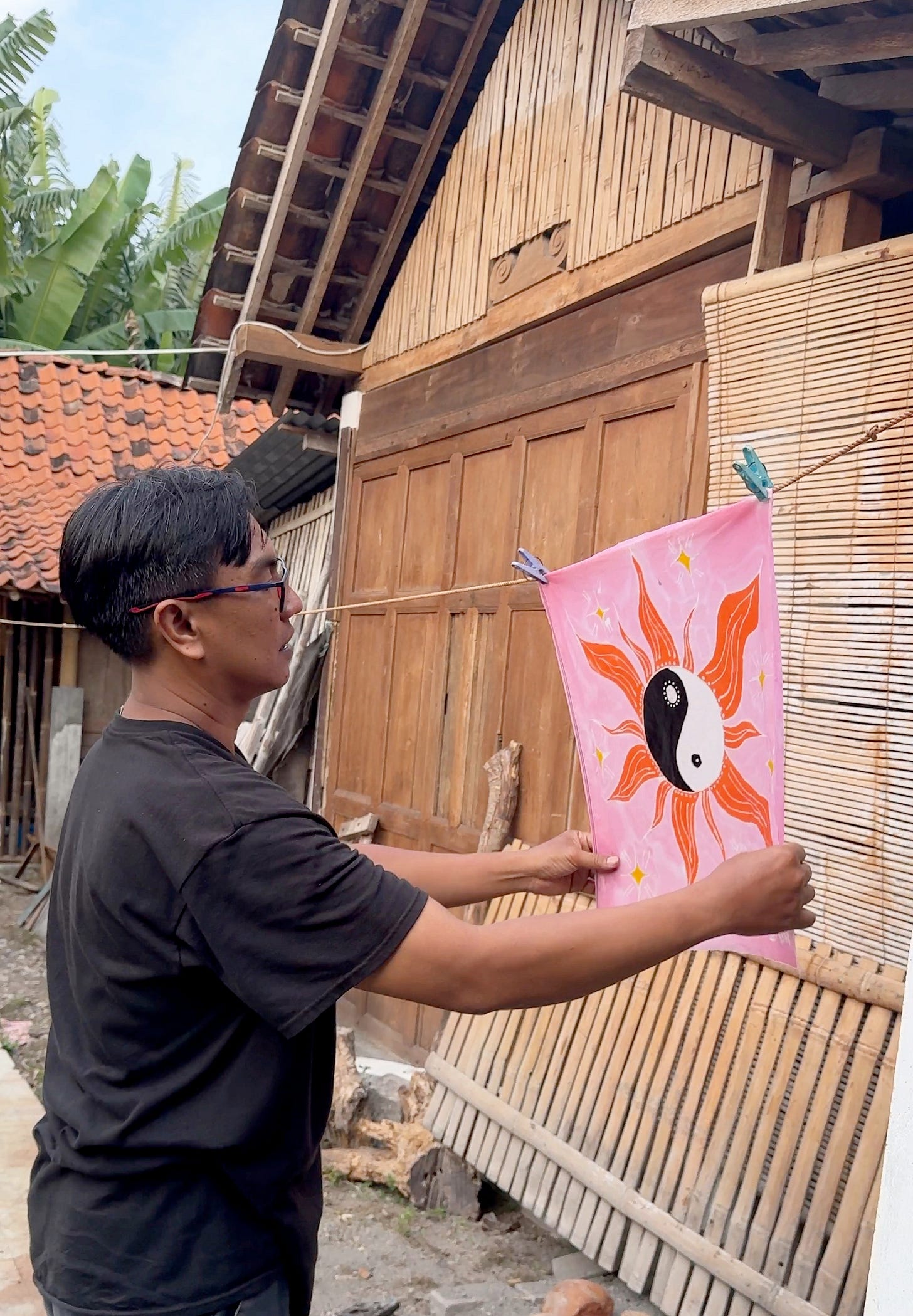
For famous neighbourhoods, instead of getting a tour, which might be offensive to locals, do your own research into that area. Find places you want to check out, street art you want to see, and leave yourself enough time to simply meander, resigning yourself open to the serendipity of adventure travel! If you do want to tour as you feel that could help bring the area to life, make sure you get one that is run by a local to that neighbourhood. Someone who you’ll see saying hello to everyone as you walk, who knows all the spots and all about the history and customs of their community.
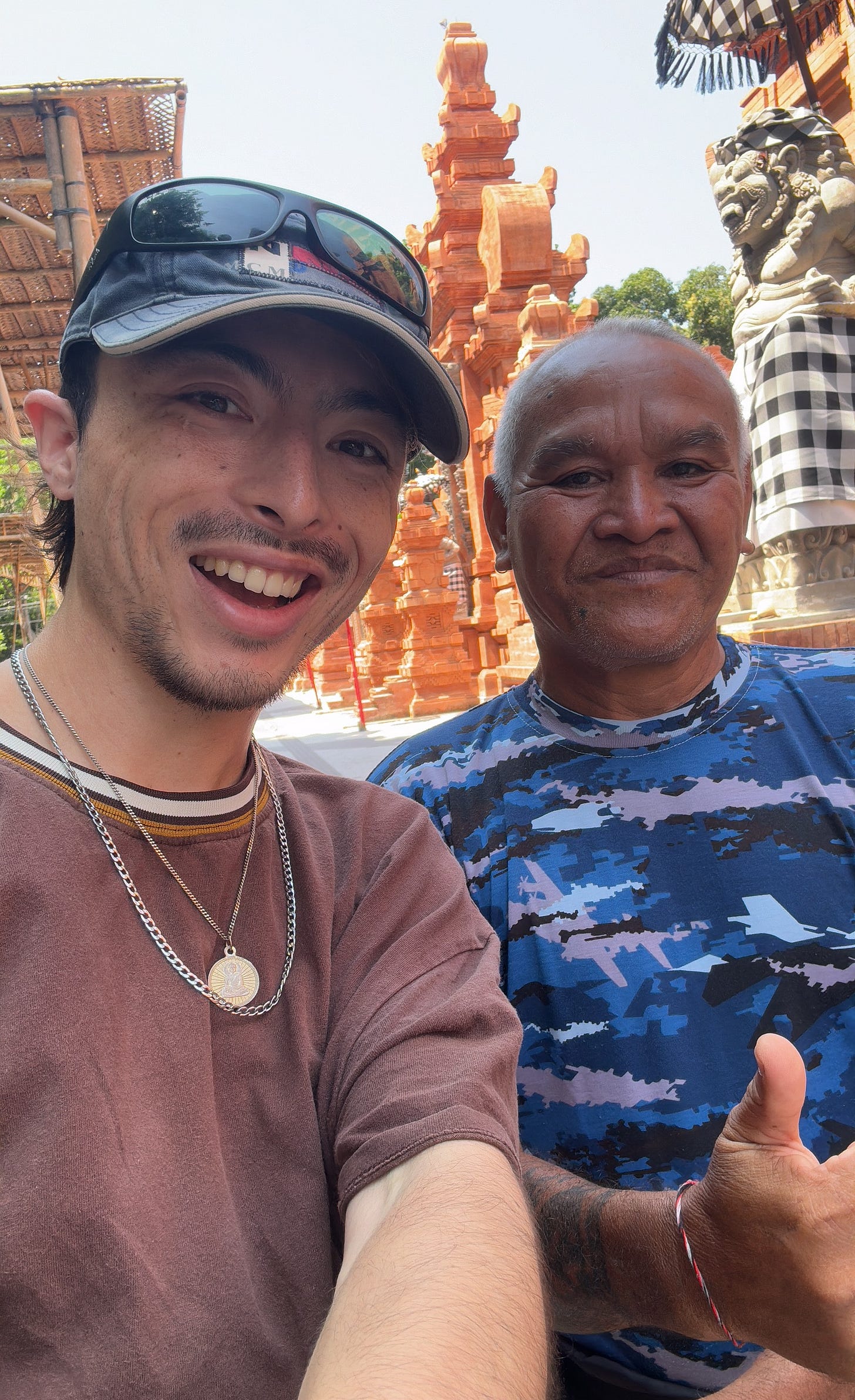
Package holidays should be avoided like the plague. You don’t want a one-size-fits-all experience. Create something yourself – something exhilarating and unique. Package deals are part of the choreographed colonial imaginary of travel that separate you from communities.
Research your destination beforehand with documentaries that explore locations through food, culture, history and social issues – not from a tourist perspective. Anthony Bourdain’s No Reservations or Parts Unknown are your gold standard life saver for this. If there is anyone who has achieved the slow travel, culturally rich ideal we are thinking about today, it is him. All his documentaries are available on YouTube or on Amazon Prime. If you’re a book worm, pick up an enticing read about your destination’s history or culture, not a thick Yellow Pages-esque guidebook.
But this is just the start. Let us teach you more.
To become the responsible traveller, I started slow. I grew, evolved and developed over time through experience. I have now travelled a total of four years since 2018 and can proudly say I am a seasoned expert. But this took a lot of trial by error, and I’ve definitely made plenty of mistakes along the way. I still do at times – mistakes are completely normal and a part of our journey of growth.
It’s my turn now to teach you how to become a responsible, autonomous, and adventurous traveller they way you want to be. Me and my partner, Caitlin, are now offering travel how-to classes. We can also help you plan your destination and set you on your way to have an unforgettably unique holiday. Here are what we can help you with:
Tian (me): I can teach you about how to responsibly travel and identify experiences that are community-run and a unique adventure for you. I also can help you with backpacking, packing lightly, and hostels in general. Furthermore, I can give you no-nonsense information about safety in destinations and how to make sure you avoid any potential dangers or scams. For destination itinerary guidance, I am an expert in:
South America: Brazil, Colombia, Ecuador, Peru, Bolivia, Dominican Republic;
Europe: England, Portugal, Andalusia (Spain), Malta, The Netherlands (Holland), Kosovo, North Macedonia, Krakow (Poland);
Asia: Thailand, Malaysia, Vietnam, Java and Bali (Indonesia), Myanmar (Burma).
Caitlin: can teach you about travel from a Gen-Z perspective, fun, local experiences for a young itinerary, safety and packing from a woman perspective. Caitlin can also teach you about how to identify and arrange experiences that are community-led. She is also able to give tips for a fashion-minded traveller! For destination itinerary guidance, Caitlin is an expert in:
Europe: England, Paris (France); Antwerp (Belgium)
Asia: Thailand, Vietnam, Java and Bali (Indonesia), Malaysia;
North America: New York and San Diego (USA), Mexico City (Mexico).
We also have plenty of links to discounts in travel that can help you get on your way confidently! Please see our Instagram for more 😊
Let’s unleash your inner voice for adventure!





